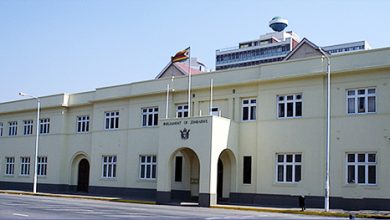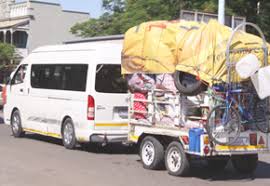
Headman for Dingindawo line, Ward 7, in Tsholotsho says he fears some learners might not be able to return to school when schools re-open due to teenage pregnancies and failure to raise tuition fees.
This comes at a time when schools prepare to reopen on July 28.
Only Form Six, Form Four and Grade Seven classes will resume at the end of July with Lower Six, Form Three and Grade Six classes expected to resume three weeks later.
The other classes are expected to resume later in phases.
Headman Gibson Khumalo said learners have spent have spent the last three months idle following the abrupt closure of schools on March 30 as part of measures to curb the spread of Covid-19.
“Covid-19 has really affected us especially in the education of our children,” said Headman Khumalo.
“Some learners might not be able to go back to school when schools re-open due to many different reasons, it can be that some of them will be pregnant while may lack of tuition fees. It has been too long with children not going to school.”
Save The Children, in its latest report titled, Save Our Education, has warned that due to deep budget cuts to education and rising poverty caused by the Covid-19 pandemic, at least 9.7 million children could be forced out of school forever by the end of this year, with millions more falling behind in learning.
“Around 10 million children may never return to school – this is an unprecedented education emergency and governments must urgently invest in learning. Instead, we are at risk of unparalleled budget cuts which will see existing inequality explode between the rich and the poor, and between boys and girls. We know the poorest, most marginalised children who were already the furthest behind have suffered the greatest loss, with no access to distance learning – or any kind of education – for half an academic year,” Inger Ashing, CEO of Save the Children.
According to the report, girls are at increased exposure to gender-based violence and risk of child marriage and teen pregnancy during school closures
Headman Khumalo added that the pandemic has altered their daily routines as most villagers are now living in fear due to limited information.
“The second thing is that this Covid-19, we do not even know what it is, or how its spread but we only know that it’s killing a lot of people out there,” he said.
“In this area where we are staying its overwhelming us and shocking because we do not even what to do when one is diagnosed with it, even the symptoms we are not aware of them. We do not even know where one goes if they want to be tested.”
Another villager, Lameck Ncube said the closure of the border has affected their livelihoods as most of them depend on their children in neighbouring countries for support.
“We have affected by Covid-19 due to the closure of borders, as we rely on our children who are based in neighbouring countries. They used to send us food on a regular basis but now we are facing challenges.”
As of July 12, Zimbabwe had recorded 985 Covi-19 cases with 328 recoveries and 18 deaths.







What a wicked mother. Vamwe vari kutsvaga vana iye anotodumper mwana. Ngavambomuvharira mujere. Useless mother